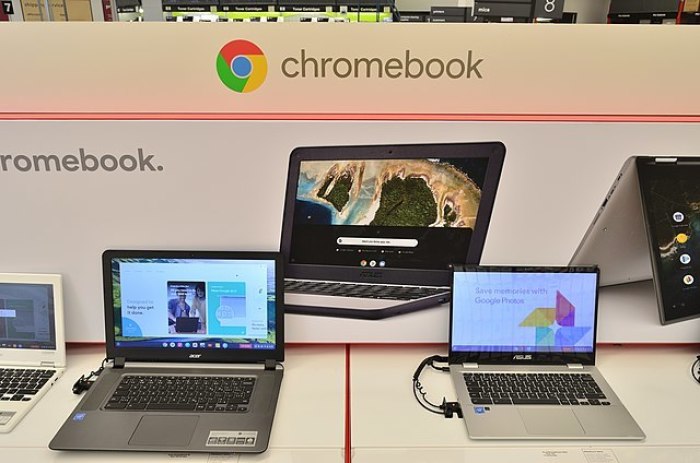Google implements changes to Chromebooks amid complaints of kids accessing pornography

Google has announced additional safety measures for its Chromebook product after being put on the National Center on Sexual Exploitation's “Dirty Dozen List" because of the lack of safeguards for children.
In February, the National Center on Sexual Exploitation placed Google Chromebook on its annual list of companies and entities complicit in “perpetuating” sexual exploitation in any form.
At issue, were the lack of safety measures on Chromebook laptops — especially those given to students by schools — to restrict access to graphic content like pornography.
In an announcement Tuesday, Google stated that its taking measures to make Chromebooks safer for students enrolled in kindergarten through 12th grade.
“We’re launching a new age-based access setting to make it easier for admins to tailor experiences for their users based on age when using Google services like YouTube, Photos and Maps,” wrote Jennifer Holland, director of education program management at Google.
“Starting today, all admins from primary and secondary institutions must indicate which of their users, such as their teachers and staff, are 18 and older using organizational units or groups in Admin Console.”
Holland explained that after Sept. 1, “students who are under 18 will see changes in their experience across Google products.”
“For example, after September 1, students designated as under 18 in K-12 domains can view YouTube content assigned by teachers, but they won’t be able to post videos, comment or live stream using their school Google account,” she continued.
“If admins don’t make a selection by September 1, primary and secondary institutions users will all default to the under-18 experience, while higher-education institutions users will default to the 18-and-older experience.”
While several schools already use tools like SafeSearch and SafeSites, Holland said Google is “updating their defaults to ensure a safer web browsing experience for K-12 institutions.”
“Now, SafeSearch and SafeSites will be on by default, and Guest Mode and Incognito Mode will be off by default. Admins can still change each of these policies on Chrome OS for individual organization units,” wrote Holland.
“The Google for Education team is committed to creating tools and services that are secure by default and private by design, all the while giving you complete control over your environment.”
NCOSE CEO Dawn Hawkins said the changes will keep “millions of kids safer.”
“These crucial improvements will drastically limit the amount of exposure to harmful content and potential predators through school-issued Chromebooks,” Hawkins said in a statement.
“These changes will also greatly ease the burden on administrators and teachers — who are often left without sufficient IT support — to try to figure out how to turn on all the safety features.”
Chromebooks landed on the 2021 Dirty Dozen List, NCOSE said, because Google "refused to take simple measures that would significantly reduce kids’ exposure to pornography and predators” through Chromebooks.
The organization reported that there were "countless" stories and personal accounts of children "accessing harmful material through their school-issued Chromebooks" at school and at home.
Last November, two families sent a letter to school officials in Montgomery County, Maryland, claiming that their children as young as 9 years old were exposed to hundreds of pornographic websites through their school-issued Chromebooks.
“He’s a little boy, and he saw things that no one should see, especially a child,” one of the fathers told The Washington Post.
NCOSE warns that with overburdened school administrators and teachers trying to navigate new technology during the pandemic, "devices are often left insufficiently protected" and leave "children even more vulnerable to accessing harmful material like pornography and being accessed themselves by predators."





























